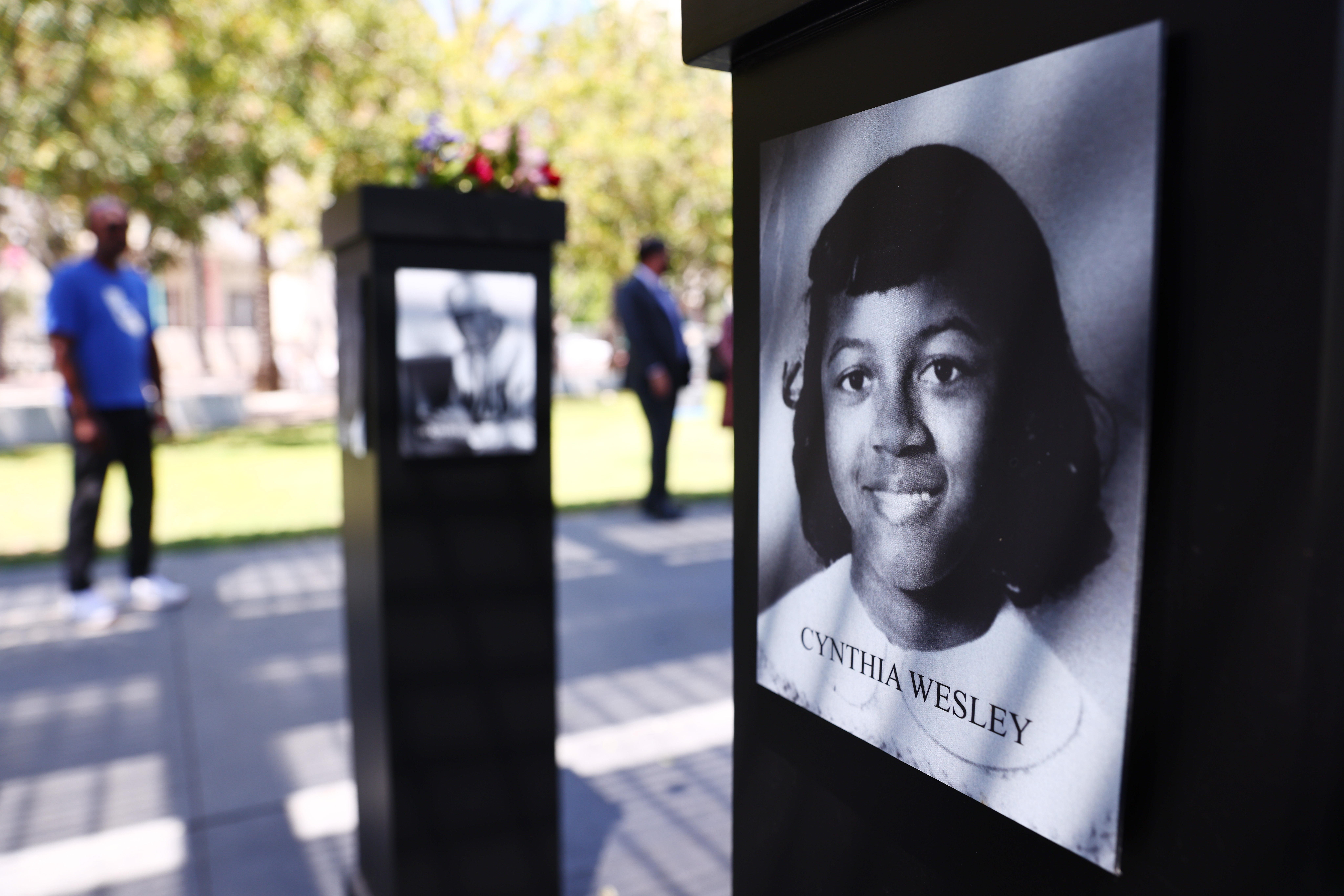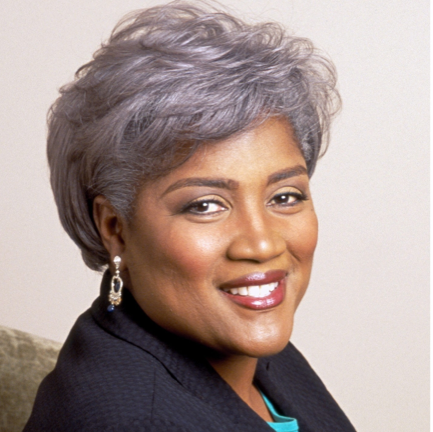OPINION: The deadly bombing of the 16th Street Baptist Church in Birmingham, Alabama, on Sept. 15, 1963 was a wakeup call for America and helped win the passage of the Civil Rights Act of 1964.
Editor’s note: The following article is an op-ed, and the views expressed are the author’s own. Read more opinions on theGrio.
Friday is the 60th anniversary of the horrific bombing of the 16th Street Baptist Church in Birmingham, Alabama, that killed four Black girls who were there for Sunday worship. Denise McNair was only 11. Addie Mae Collins, Carole Robertson and Cynthia Wesley were just 14.
Addie Mae’s 12-year-old sister Sarah lost an eye in the blast, and at least 13 other people were injured at the Black church on Sept. 15, 1963. All the killed and injured were victims of white supremacy and the belief that Black lives don’t matter.
The Rev. Martin Luther King Jr. delivered a powerful eulogy at the funeral service for three of the murdered girls.
“These children — unoffending, innocent and beautiful — were the victims of one of the most vicious and tragic crimes ever perpetrated against humanity,” Dr. King said. “And yet they died nobly. They are the martyred heroines of a holy crusade for freedom and human dignity.”
If they had lived, the four girls would be in their 70s today. But they never had the chance to grow up, complete their educations, get jobs, pursue their dreams, get married or have children and grandchildren.
Three Ku Klux Klansmen were eventually convicted of first-degree murder and sentenced to life imprisonment for the bombing, but the convictions didn’t come for many years — in 1977, 2001 and 2002. A fourth Klansman implicated in the bombing died before he could be charged. In the 1960s in the South, witnesses feared testifying against the Klan.
Months before the church bombing, Birmingham was a center of protests against the city’s system of racial segregation. Dr. King was one of the leaders of marches, sit-ins and a boycott of white businesses that eventually brought an end to the most blatant segregationist practices.
Responding to the protests, Birmingham Public Safety Commissioner Theophilus Eugene “Bull” Connor, a staunch segregationist, ordered firefighters and police to ferociously attack hundreds of nonviolent protesters with hoses, dogs and clubs.
TV coverage of the brutal beatings of peaceful protesters — many of them children — galvanized the nation, as did news coverage months later of the murders of the four girls at the 16th Street Baptist Church.
Public outrage at the racist oppression and violence directed against Black Americans helped win congressional passage of the landmark Civil Rights Act of 1964, strongly supported and signed into law by President Lyndon Johnson. The law banned racial segregation in public places and outlawed employment discrimination based on race, color, religion, sex and national origin.
Dr. King, who called Birmingham “the most segregated city in America,” was among hundreds of protesters arrested there for violating a state law against mass demonstrations. He wrote his famous “Letter from Birmingham Jail” while imprisoned.
The letter, which drew widespread attention after it was published in newspapers and magazines, was a response to eight white religious leaders who criticized the Birmingham protests as “unwise and untimely.” It served as a wake-up call to America about the evil effects of white racism and explained why Black people would not continue their hundreds of years of waiting for change to come.
“Oppressed people cannot remain oppressed forever,” Dr. King wrote in the letter. “The urge for freedom will eventually come. This is what has happened to the American Negro. Something within has reminded him of his birthright of freedom; something without has reminded him that he can gain it.”
The girls killed in Birmingham 60 years ago were far from the first or last Black victims of racist violence.
Between 1501 and 1866, an estimated 1.8 million of the more than 12.5 million Africans captured on their home continent and forced into slavery died on voyages to North and South America, chained together in horrendous conditions unfit even for animals.

And once in what is now the United States, untold numbers of enslaved Africans were beaten, raped and murdered by whites, who faced no punishment. Yet outrageously, just this year Florida adopted new standards requiring public school students to be taught that “slaves developed skills which, in some instances, could be applied for personal benefit.”
While slavery is long gone and genuine progress has been made in improving the lives of Black Americans, the senseless killing of Black people continues with the ferocity of an out-of-control epidemic. Dr. King was among the many murder victims, assassinated in 1968 at age 39.
Just last month, a white gunman who left behind racist writings shot and killed three Black people in Jacksonville, Florida, with a gun emblazoned with swastikas before fatally shooting himself. I’m afraid we won’t have to wait long before more Black lives are lost to racist violence. Violence in any form is abominable.
We can and must remember the Black victims of racism murdered over the centuries and in our own lifetimes. We must tell their stories to teach children of all races the truth about the awful consequences of racism and all other forms of bigotry and prejudice.
Racism won’t disappear if we pretend it doesn’t exist, any more than cancer will disappear if we refuse to acknowledge it is real. Just as we fight cancer when it strikes, we must unite across racial, ethnic and religious lines to fight racism and other noxious forms of prejudice.
On the 60th anniversary of the bombing of the 16th Street Baptist Church, we should all recognize that racism is a cancer of the soul, creating a cauldron of seething hatred that demonizes and dehumanizes its targets and ultimately consumes the hearts of racists as well.
As Dr. King said: “Darkness cannot drive out darkness; only light can do that. Hate cannot drive out hate; only love can do that.”

Donna Brazile is a veteran political strategist, Senior Advisor at Purple Strategies, New York Times bestselling author, Chair of the J. William Fulbright Foreign Scholarship Board, and sought-after Emmy- and Peabody-award-winning media contributor to such outlets as ABC News, USA Today and TheGrio. She previously served as interim Chair of the Democratic National Committee and of the DNC’s Voting Rights Institute. Donna was the first Black American to serve as the manager of a major-party presidential campaign, running the campaign of Vice President Al Gore in 2000. She serves as an adjunct professor in the Women and Gender Studies Department at Georgetown University and served as the King Endowed Chair in Public Policy at Howard University and as a fellow at the Institute of Politics at Harvard Kennedy School. She has lectured at nearly 250 colleges and universities on diversity, equity and inclusion; women in leadership; and restoring civility in American politics.
TheGrio is FREE on your TV via Apple TV, Amazon Fire, Roku and Android TV. Also, please download theGrio mobile apps today!
The post 60 years ago, the racist murder of four Black girls in Alabama stirred America’s conscience appeared first on TheGrio.

